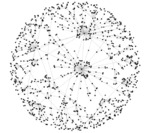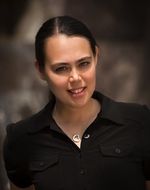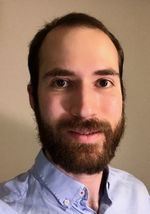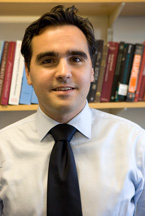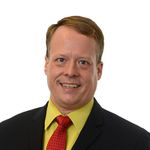SFI Networks Short Course 201 - Faculty 2017
From Santa Fe Institute Events Wiki
| Networks Short Course 2017 |
SFI NETWORKS & BIG DATA SHORT COURSE ON COMPLEXITY
July 26-28, 2017 - Hyatt Centric Times Square, New York City, New York
DIRECTOR
Short Course Director Michelle Girvan
Michelle Girvan is an Associate Professor in the Department of Physics and the Institute for Physical Science and Technology at the University of Maryland, College Park. She is also a member of the External Faculty at the Santa Fe Institute. Her research operates at the intersection of statistical physics, nonlinear dynamics, and computer science and has applications to social, biological, and technological systems. More specifically, her work focuses on complex networks and often falls within the fields of computational biology and sociophysics. While some of the research is purely theoretical, Girvan has become increasingly involved in using empirical data to inform and validate mathematical models.
website
FACILITATOR
Short Course Facilitator David Darmon
David Darmon is a research scientist at the Uniformed Services University in Bethesda, Maryland. His research focuses on developing new analytical tools to facilitate understanding of dynamical processes that occur on networks. By realizing information theoretic analyses via nonparametric statistics, investigators can gain new insights into the organization of complex systems. He received his doctorate in Applied Mathematics and Scientific Computing from the University of Maryland, College Park in 2015.
website
SPEAKERS CONFIRMED TO DATE
Damon Centola - Annenberg School for Communication - University of Pennsylvania
Damon Centola's research addresses the complex dynamics of collective behaviors. One set of projects uses agent based models to understand how changes in the topology of social networks can impact the spread of social contagions. Other work uses web-based experimental methods to test these models and provide new theoretical insights into research on collective behavior. Research areas include the emergence of unpopular norms, the mobilization of committed minorities, and the polarization of cultures.
This research has won the 2006, 2009 and 2011 American Sociological Association Award for Outstanding Article in Mathematical Sociology, and the 2011 Goodman Award for Outstanding Contributions to Sociological Methodology.
website
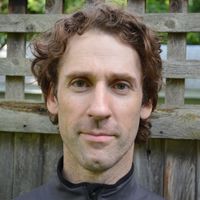
Peter Dodds - Professor, Director of the Vermont Complex Systems Center and More - University of Vermont
Peter Dodds is a Scientist at the University of Vermont (UVM). Together with Chris Danforth, he co-runs the Computational Story Lab.
He is the Director of the Vermont Complex Systems Center at UVM (VCSC). I'm a Full Professor in the Department of Mathematics and Statistics which is part of the College of Engineering and Mathematical Sciences at UVM. He is also a visiting faculty fellow at the Vermont Advanced Computing Core (VACC).
In his research and teaching, Dodds focuses on system-level, big data problems of all kinds, often networked, sociotechnical ones. He has general interest in stories/narratives, complexification, contagion, and robustness, and a long-term goal to understand a Theory of Anything.
CV website
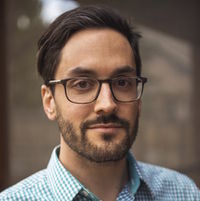
Daniel Larremore - Santa Fe Institute
Daniel Larremore is an Omidyar Fellow at the Santa Fe Institute. His research develops statistical and inferential methods for analyzing large-scale network data, and uses those methods to solve applied problems in diverse domains, including public health and academic labor markets. Prior to joining the Santa Fe Institute he was a post-doctoral fellow at the Harvard T.H. Chan School of Public Health 2012-2015. He obtained his Ph.D. in Applied Mathematics from the University of Colorado at Boulder in 2012, and holds an undergraduate degree from Washington University in St. Louis.
website
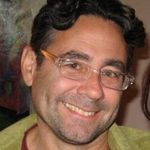
Neo Martinez - University of Arizona
Neo Martinez' Lab investigates the structure and function of complex networks, especially ecological networks involving feeding relationships, population dynamics, evolution and interactions with humans. He is a broadly trained interdisciplinary ecologist who employs empirically and theoretically oriented computational tools including simulations, visualizations, informatics, and games to elucidate the complex interdependencies of all life on earth.
website
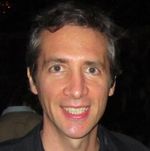
Hernan Makse - City College of New York, New York City
Hernan Maksi runs the Complex Networks and Soft Matter Lab of Hernan Makse at the Levich Institute and Department of Physics of City College of New York. The lab group is interested in the theoretical understanding of Complex Systems and Data Science from a Statistical Physics viewpoint. The researchers are working towards the development of new emergent laws for complex systems, ranging from the brain and biological networks to social systems. They treat these systems from a unified theoretical approach using concepts from statistical mechanics of out-of-equilibrium complex networks, optimization theory, machine learning and big-data science that they have developed in their studies of social networks and disordered systems in physics. In parallel, they also focus on the study of jammed matter, spanning from granular materials, colloidal suspensions and dense emulsions to glasses, in search of unifying theoretical frameworks. The researchers focus on the theoretical and computational approaches in parallel with experiments.
website
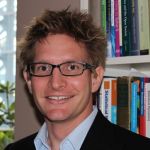
Ole Peters - SFI External Faculty and Resident Fellow - London Mathematical Laboratory
Ole Peters's work focuses on stochastic processes that are non-ergodic. This means that long-time averages do not converge to expectation values. Such processes are of practical relevance because they form the basis of economic theory. However, their non-ergodic nature has not been fully explored.
Prior to becoming interested in the foundations of economics I worked on atmospheric convection and far-from equilibrium critical phenomena in statistical mechanics.
Extra-curricular: I’m a fan of anything to do with oceans.
[website]
Bill Rand - Poole College of Management - NC State
William Rand examines the use of computational modeling techniques, such as agent-based modeling, machine learning, network analysis, natural language processing, and geographic information systems, to help understand and analyze complex systems, such as the diffusion of information, organizational learning, and economic markets.
He also works to develop methods, create pedagogy, and build frameworks to allow researchers and practitioners to use analytics and data-intensive methods in their own work. He has received funding for his research from the NSF, DARPA, ARL, Google, WPP, and the Marketing Science Institute. His work has been published in JM, JMR, IJRM, Management Science, and JOM. He received his doctorate in Computer Science from the University of Michigan in 2005 and prior to coming to NCSU was at the University of Maryland for eight years.
website

